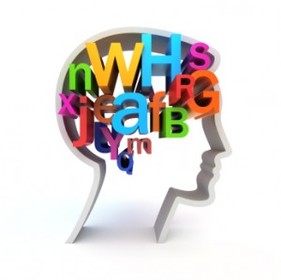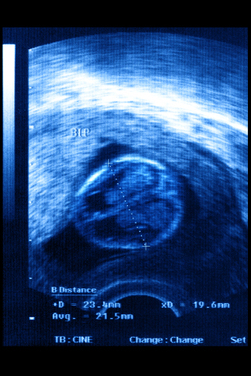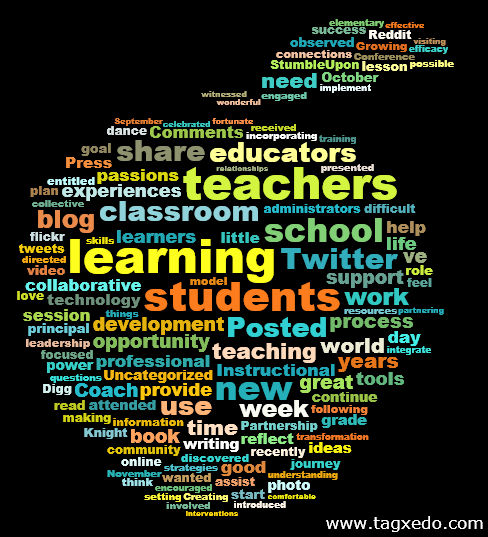|
Students heading back to school can always count on one thing: Technology will be a little bit more advanced than it was last year. After all, 21st century learning experiences are increasingly enhanced by gadgets and software, and the ability to plug into worlds beyond the classroom. Even so, technology is no substitute for everyday student engagement and collaboration among students, researchers find.
The study, published in Computers & Education, was the culmination of 20 years of analysis of 1,105 courses dating back to 1990, the year that spawned the World Wide Web.
0 Comments
 People have more difficulty recalling the string of letters BIC, IAJ, FKI, RSU and SAF than FBI, CIA, JFK, IRS and USA. New research by Carnegie Mellon University (CMU) psychologists takes this learning principle one step further by uncovering how the strength -- or familiarity -- of those chunks plays a crucial role. CMU researchers show for the first time that it is easier to learn new facts that are composed of more familiar chunks. These findings have implications for how students are taught almost any subject, including second language learning. They also indicate that the long-held belief that children have less working memory than adults may not be true because working memory resources are more rapidly consumed when the chunks are less familiar. "We are suggesting that working memory capacity is not a fixed quantity but interacts with the familiarity of the elements that need to be processed. If everything is very familiar, it is easy to comprehend and build new knowledge. If all of the components are unfamiliar, the task becomes very difficult or impossible," said Lynne Reder, professor of psychology in the Dietrich College of Humanities and Social Sciences and a leading expert on memory, cognition and behavior. Reder also is a member of CMU's Center for the Neural Basis of Cognition (CNBC) and the Human-Computer Interaction Institute. "This work has implications for how to optimize instruction, specifically that concepts should be introduced to students in a way that they have a good grasp and familiarity with those concepts before trying to combine them into more complex informational structures. These findings may also help to explain certain paradoxes such as why children tend to learn computer applications more easily than adults and may help to explain why they learn second languages better than adults," Reder said. "Little kids may actually have more working memory than adults. They often appear to have less only because they have fewer knowledge chunks and those chunks are weaker than adults. Adults have wisdom 'knowledge and skills -- and scientists have been confusing that with greater working memory," she said. Lynne M. Reder, Xiaonan L. Liu, Alexander Keinath, Vencislav Popov. Building knowledge requires bricks, not sand: The critical role of familiar constituents in learning. Psychonomic Bulletin & Review, 2015 Only 10 percent of concussions involve a loss of consciousness, but the other 90 percent can still produce symptoms! Children who exhibit the following warning signs should be stopped, evaluated, and followed by a physician until symptoms resolve.
 The brain’s foundation, frame, and walls are built in the womb. As an embryo grows into a fetus, some of its dividing cells turn into neurons, arranging themselves into layers and forming the first synapses, the organ’s electrical wiring. Four or five months into gestation, the brain’s outermost layer, the cerebral cortex, begins to develop its characteristic wrinkles, which deepen further after birth. It isn’t until a child’s infant and toddler years that the structures underlying higher-level cognition—will power, emotional self-control, decision-making—begin to flourish; some of them continue to be fine-tuned throughout adolescence and into the first decade of adulthood. Dr. Pat Levitt, a developmental neuroscientist at Children’s Hospital Los Angeles, he has become interested in another sort of neurotoxin: poverty. As it turns out, the conditions associated with poverty — “overcrowding, noise, substandard housing, separation from parent(s), exposure to violence, family turmoil,” and other forms of extreme stress--can be toxic to the developing brain, just like drug or alcohol abuse. These conditions provoke the body to release hormones such as cortisol, which is produced in the adrenal cortex. Brief bursts of cortisol can help a person manage difficult situations, but high stress over the long term can be disastrous. In a pregnant woman, the hormone can “get through the placenta into the fetus,” Levitt told me, potentially influencing her baby’s brain and tampering with its circuitry. Later, as the same child grows up, cortisol from his own body may continue to sabotage the development of his brain. |
Disclaimer: This website is for informational and educational purposes.
Any and all blog content represents a synthesis of empirical information found on the internet, of my own personal opinions, and my professional experiences. Nothing posted reflects or should be considered professional advice. Interaction with me via the blog does not constitute a professional or therapeutic relationship. For professional and customized advice, you should seek the services of a licensed mental healthcare professional. I do not assume liability for any portion or content of material on the blog and accept no liability for damage or injury resulting from your decision to interact with the website. Archives
October 2023
Categories
All
|

